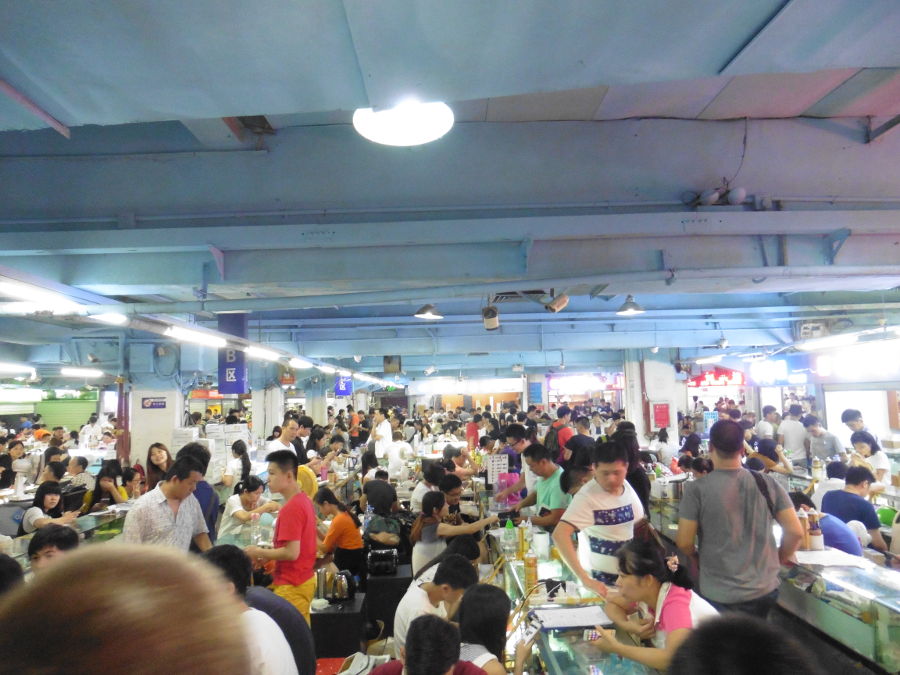 Supported by Huawei’s Seeds for the Future programme, 16 students from Swiss universities of applied sciences are spending a couple of education and project days at production and research facilities in China which cover the broad topics of telecommunications equipment, enterprise computing solutions and mobile handhelds. Among the participants, two study Computer Science and Business Information Technology, respectively, at Zurich University of Applied Sciences (ZHAW). Their study programmes are complemented well by the technical and business contents of this on-site module.
Supported by Huawei’s Seeds for the Future programme, 16 students from Swiss universities of applied sciences are spending a couple of education and project days at production and research facilities in China which cover the broad topics of telecommunications equipment, enterprise computing solutions and mobile handhelds. Among the participants, two study Computer Science and Business Information Technology, respectively, at Zurich University of Applied Sciences (ZHAW). Their study programmes are complemented well by the technical and business contents of this on-site module.
In the context of the trip, the students work in groups of four to research the state of the art in Internet of Things, Cybersecurity, Marketing and Management & HR. Josef Spillner from the Service Engineering research area coaches the Cybersecurity group to convey background knowledge on equipment and operations in Internet, cloud and service systems, as well as on scientific writing. A report on the suitability of the existing processes to assure the timely handling of incidents and a brief presentation are going to be the tangible results for this work which takes place in the context of 100 billion predicted connections established at any point in time involving 4 billion users and a lot more devices and applications.
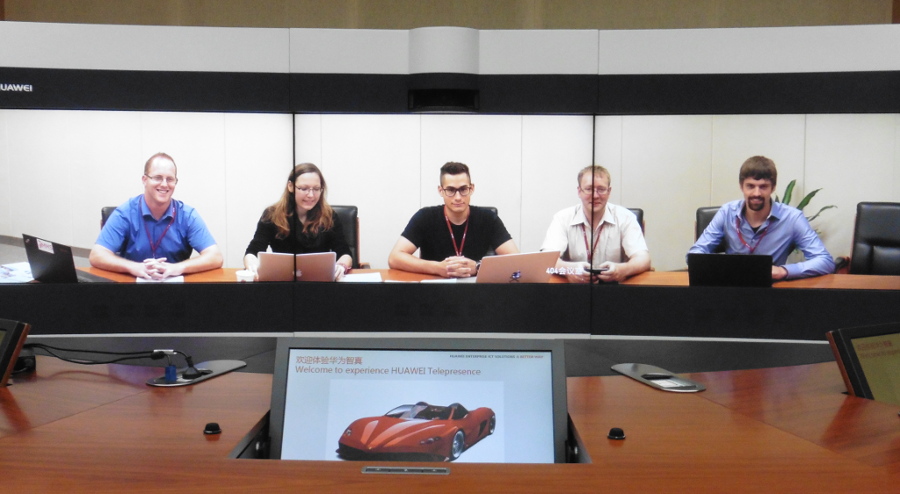
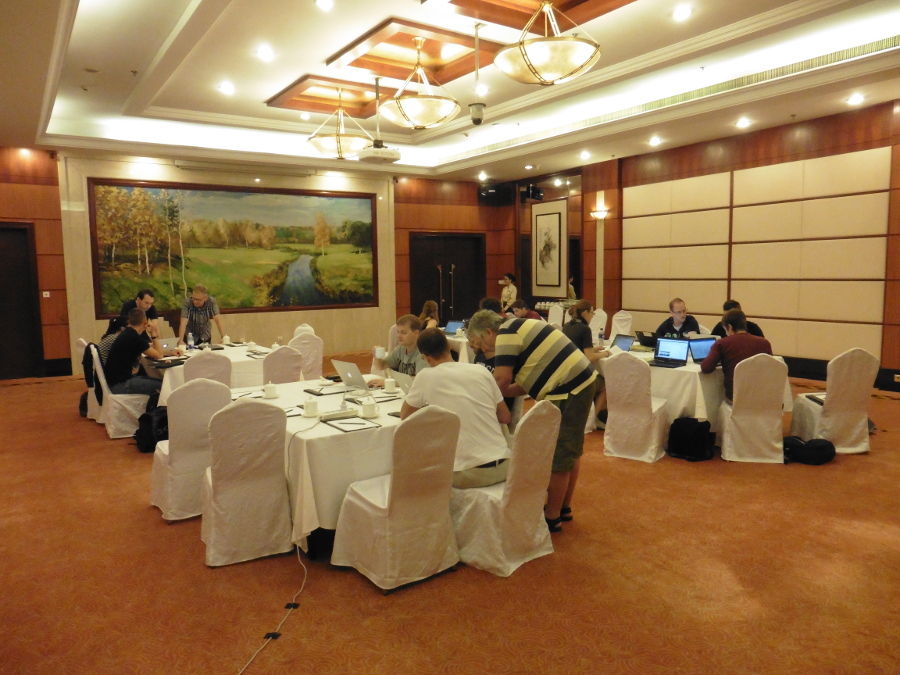
The group has already visited the Huawei headquarters in Shenzhen, which hosts around 30K of the global >170K employees, as well as the expanding production campus located north of the city with its impressive fully automated warehouse and its assembly lines. Currently, it visits the Beijing location and exposition centre. The trip is made possible by Huawei Switzerland and highlights the unique features of telecommunications (e.g. fibre to the street), cloud computing and future devices in the country. While telecommunications is a mature and saturated market which sees mostly incremental improvements (e.g. 4.5G and 5G), the management of connected devices, cars and robots is still in the early stages and will see disruptive innovation. One of the driving forces is the emergence of platforms to manage the integrated systems which leads to stronger platform-level computing as attractive entry point for application developers.
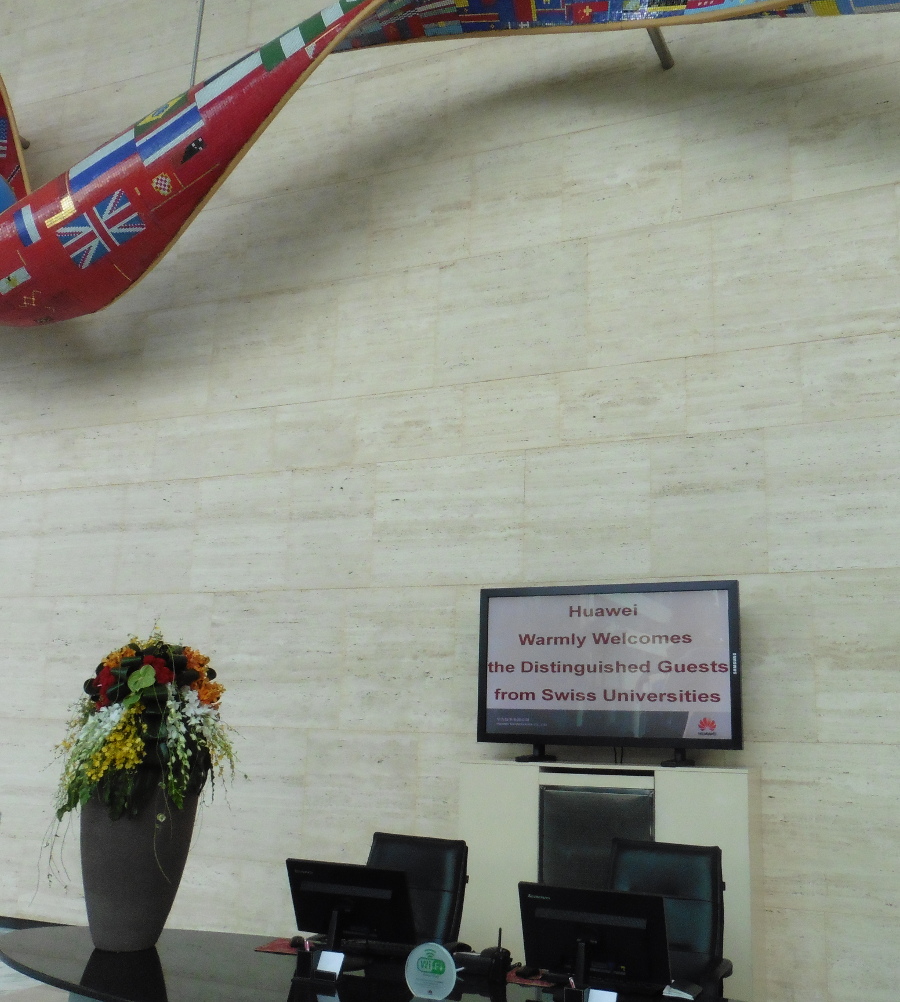
The students learn about the technology of complex connected systems which involve diverse forms of communication (mobile, satellite, narrowband, nearfield), sensing, data processing in the cloud, modular data centres, smart cities, emergency networks and related topics. Among the technologies, cloud-native and cyber-physical solutions built on top of Docker, OpenStack and LiteOS are appearing on the horizon.
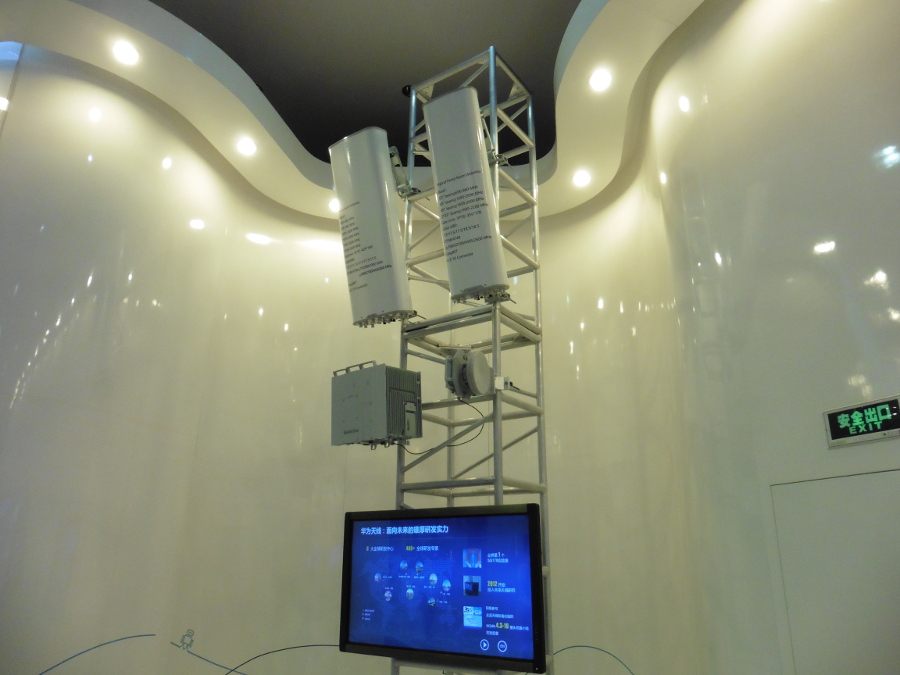
The visits are complemented by cultural and touristic intermezzi. One particularly impressive moment has been the meeting at the Swiss embassy in Beijing, the largest (Swiss) one in the world. We were welcomed by the deputy head of science, technology and education. Our group was given the opportunity to not only learn about how to conduct business and academic exchange in China and about its legal system, but also the chance to meet a group of cyclists who went all the way from Moscow to Beijing in 80 days. The demographic growth peak and subsequent declining labour force since 2014 (and 4x urban worker salary increase within one decade) leads to the potential to deploy robots not just in manufactoring, but also in services, at scale. The labour conditions in China, traditionally characterised by few holidays, dedication and obedience, are adjusted accordingly.

As the students take Global ICT as part of their curriculum, this study and self-study offer, which is repeated each year, is highly recommended for students at ZHAW to get a broader view of the trends in computing. Bachelor modules such as Cloud Computing 1 & 2 and Internet Service Prototyping convey in-depth information about what is shown in the exposition rooms and talks of large enterprises and enable students to join them at a productive level or compete against them with innovative startups. With the current positioning of both ICCLab and SPLab, we are confident to have the right structure in place to transfer novel research results into our education contribution.
